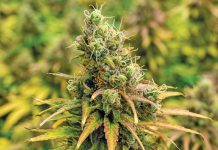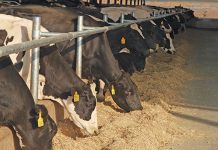Howard Ballantyne pioneered game farming in the typical cattle country of Adelaide in the Eastern Cape. Over 30 years he built up the biggest privately owned herd of Kafue lechwe on 2 100ha, attracting lucrative business from international hunters.
But as Mike Burgess discovered, all his efforts may be nullified by legislation entrenched in the National Environmental Management: Biodiversity Act 10 of 2004.
Howard Ballantyne arrved in Adelaide in the Eastern Cape during the mid-1970s, after his lucrative citrus farms near Alice were acquired by the nationalist government to increase the size of the former Ciskei.
He immediately developed a soft spot for 75 Kafue lechwe that roamed on his new farm. They were offspring from three lechwe sourced by the previous owner from the Pretoria Zoo. So began the development of one of South Africa’s largest privately owned Kafue lechwe herds – a world away from their natural home in Zambia.
But today, the lechwe face an uncertain future due to legislation formulated by the Department of Environmental Affairs and Tourism (DEAT), which aims at regulating and controlling the sale, movement and utilisation of alien or non-endemic wildlife by a strict regulatory permit system.
Building a new life with Kafue lechwe
When Howard decided to pioneer commercial game farming in the Smaldeel area of Adelaide, many farmers there thought him a little odd, because the area is some of the best cattle country in South Africa.
“Back then, game farming and putting up game fencing was unheard of in these parts of the Eastern Cape,” he says. Today, the significant development of the game farming industry in Adelaide and surrounds bears testimony to Howard’s vision 30 years ago. Lechwe have always adapted well to the area, despite their natural habitat being floodplains and swamps. By 1979, the herd had increased substantially, but tragedy struck during the early 1980s when a terrible drought decimated the herd. “At that stage, we were running over 400 lechwe and we lost over half. I also didn’t know anything about feeding them. Today I know they take well to feed,” he says.
A turn for the better
A few years later, Howard was lucky to have had enough rain and was also armed with more experience. He gradually introduced feed supplementation including first grade lucerne, game blocks and cubes, balanced his browsers and grazers and took into account the lechwe’s ability to utilise grass species often unpalatable to other animals. He rapidly increased his herd back to over 400 on 2 100ha, part of today’s nearly 4 000ha of Ballantyne Safaris.
The unusually large lechwe herd was instrumental in the development of Howard’s trophy hunting business despite nearly 40 other species and sub-species of game also on offer.
He explains the lechwe herd has been a critical marketing tool in terms of attracting hunters, mostly from the US and Spain. They hunt up to 40 trophy bulls a year with an individual price tag of US 600.
“The lechwe sell our hunts for us. If you go into the record books, you’ll see a large proportion of the lechwe shot in the Eastern Cape are from Ballantyne Safaris.”
But it’s the 100 live lechwe for sale annually that attracts buyers from across the country and generates significant extra income, while also serving as an important tool for managing numbers in the herd.
In the past few years, however, the freedom with which lechwe can be sold, acquired and transported has been severely regulated by the National Environmental Management: Biodiversity Act 10 of 2004 (Nemba), resulting in disastrous consequences for the commercial future of non-endemic and alien wildlife in South Africa.
Kafue lechwe’s commercial value eroded
When Nemba came into effect, it sowed insecurity and confusion in the game farming industry. This was quite understandable, explains Howard, as alien or non-endemic species are real money-spinners for game farmers for hunting or as live sales. “When this legislation came into effect, at first aliens weren’t allowed. Then we were allowed to keep some, but there were no definite rules regarding lechwe or fallow deer,” he says.
Overseas hunters initially shied away from hunting lechwe at Ballantyne Safaris after Nemba became a reality as it was believed exporting trophies from South Africa would be problematic. However, the real impact of Nemba has been felt in live sales. Howard explains that in terms of the legislation, the sale of lechwe to anybody who doesn’t currently own lechwe in the Eastern Cape, or to any prospective buyers in other provinces, has become practically impossible. This resulted in a crash in demand and prices, not only for lechwe, but also fallow deer. “We’ve always caught between 70 to 100 live lechwe a year, which were sold to game ranchers. I use to load lechwe for R15 000 a piece live – but it has dropped to R5 000 in the past four to five years,” says Howard. “When the DEAT said it didn’t want exotics, I lost over R1 million in four lechwe orders – people just cancelled them.
The same has been true for fallow deer, with prices dropping from about R1 200 each to about R500 each. But what can you do about it? They (DEAT officials) are sitting in air-conditioned offices, wearing collars and ties and we are out here,” he says bitterly.
Other sources: www.safaribwana.com.
Contact Ballantyne Safaris on (046) 684 0800 or 072 494 1315 or e-mail ballantynesafaris@intekom.co.za. |fw








